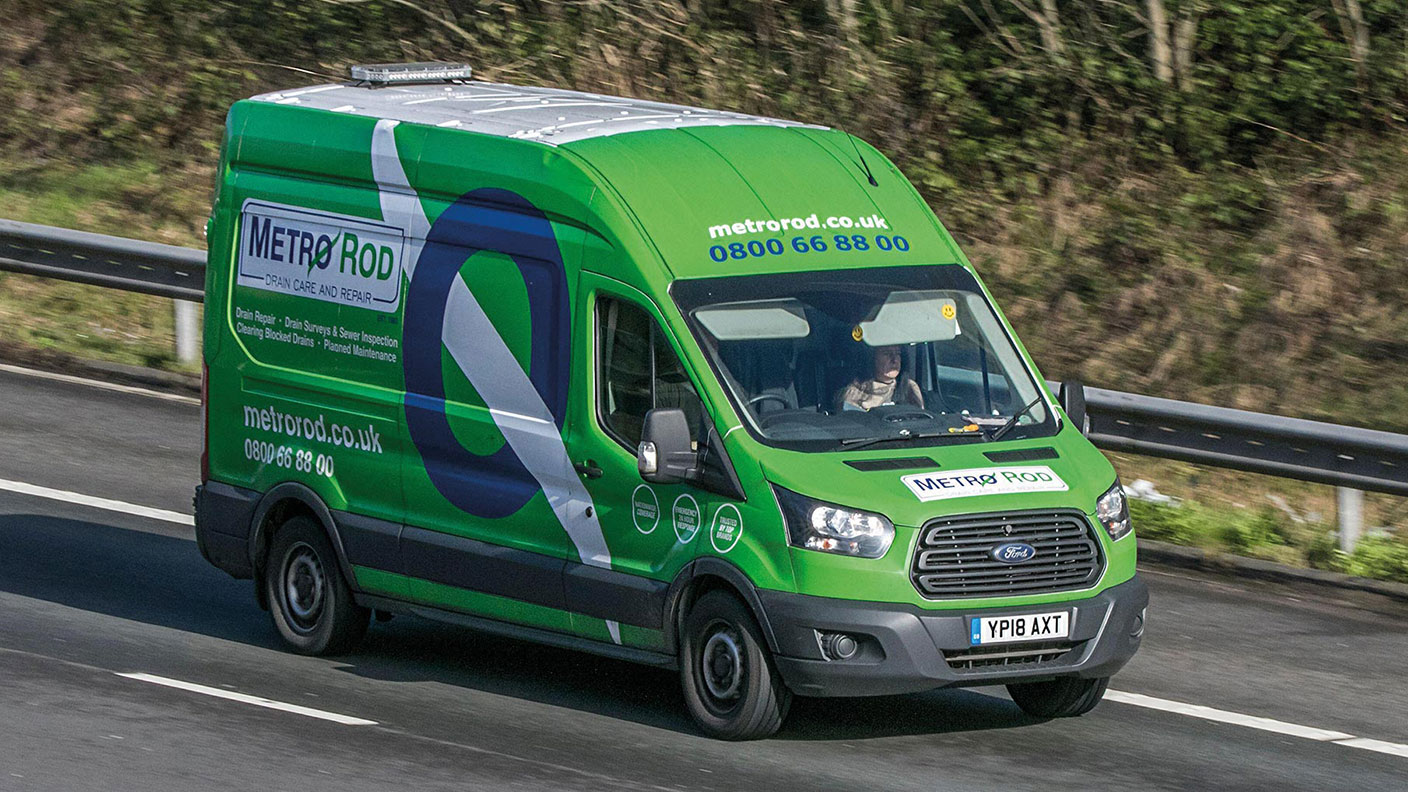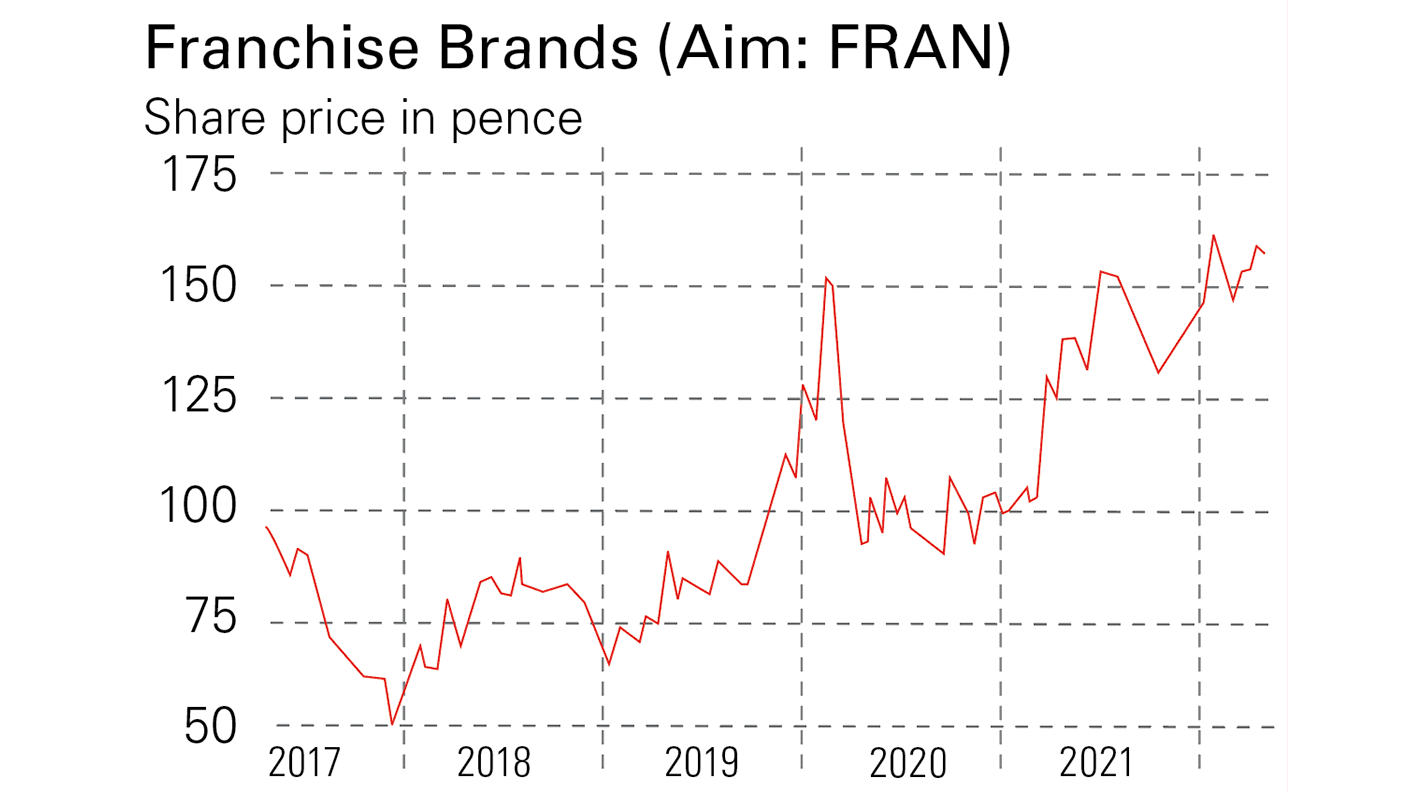Franchise Brands – from pizzas to plumbing and pets
Franchise Brands, a new venture from the team behind the growth of Domino’s Pizza in the UK, is on track for success, says Bruce Packard.


Get the latest financial news, insights and expert analysis from our award-winning MoneyWeek team, to help you understand what really matters when it comes to your finances.
You are now subscribed
Your newsletter sign-up was successful
Want to add more newsletters?

Twice daily
MoneyWeek
Get the latest financial news, insights and expert analysis from our award-winning MoneyWeek team, to help you understand what really matters when it comes to your finances.

Four times a week
Look After My Bills
Sign up to our free money-saving newsletter, filled with the latest news and expert advice to help you find the best tips and deals for managing your bills. Start saving today!
The remarkable thing about the franchise industry is that in theory it shouldn’t work, but in practice it does. For instance, there’s very little that can’t be copied in the restaurant sector: there’s hardly any legal protection against a competitor imitating designs, menus and themes. Yet Subway, McDonald’s, 7-Eleven, Dunkin’ Donuts and Domino’s Pizza are obviously successful franchise businesses.
The way franchising works is that the franchisor licenses the brand and intellectual property to the franchisee, who trades as a small business. The franchisee operates using the back-office systems that the franchisor has set up and enjoys support in the form of training and mentoring.
The question is whether the benefits accrue to the franchisee, who works hard dealing with the day-to-day problems of running a small business, or the franchisor, who has developed the concept and is earning abundant fees while putting little capital at risk.
MoneyWeek
Subscribe to MoneyWeek today and get your first six magazine issues absolutely FREE

Sign up to Money Morning
Don't miss the latest investment and personal finances news, market analysis, plus money-saving tips with our free twice-daily newsletter
Don't miss the latest investment and personal finances news, market analysis, plus money-saving tips with our free twice-daily newsletter
Some franchisors report strong revenue growth, while experiencing “churn” – recruiting new franchisees to replace disillusioned ones who have failed to earn a living. This model eventually becomes unsustainable, as word gets out that the economics are unfavourable to franchisees.
But when everything goes well, you have a Domino’s Pizza. Shares of Domino’s Pizza Group (DPG), the UK master franchise, have increased in value 44-fold in the last 20 years. The US founding company, Domino’s Pizza, is up 28-fold since it listed in 2004.
A different kind of franchise
While Domino’s is hugely successful, it’s unlikely that either the US or UK pizza restaurant will repeat that kind of share-price performance in the next 20 years. Instead, the former DPG management team (Stephen Hemsley, Nigel Wray, Colin Rees, Andrew Mallows, Robin Auld and Rob Bellhouse) left and set out to repeat their success with franchising.
Franchise Brands (Aim: FRAN) was founded by Stephen Hemsley and Nigel Wray and listed on Aim in 2016 at 40p per share. Since 2016 revenue has more than doubled, from £21m to £58m in 2021.
Franchise Brands’ strategy has been to acquire a variety of franchise businesses and then put them on the same common platform for administration, marketing and IT functions. It has focused on less glamorous areas than pizza restaurants. Two commercial-plumbing businesses together make up the bulk of group revenues: Metro Rod was 63% of 2021 revenues and Willow Pumps was 26% of revenues.
Metro Rod, which Franchise Brands bought from a private equity seller in 2017 for £28m, grew at 23% last year. The division was resilient in the lockdown because it focuses on drain clearing and maintenance. Around 90% of Metro Rod’s £28m revenues come from management services fees, which are paid to it by franchisees (the calculation is 18.6% of the franchisees’ turnover).
Willow Pumps is around half the size of Metro Rod and has been less resilient. Willow installs pump stations, which are typically long-term projects often for the housebuilding sector, where labour shortages and rising raw materials prices have delayed building projects.
Recovering from the pandemic
Franchise Brands’ other operations include services to consumers, such as oven cleaning (Ovenclean), car-chips repairs (ChipsAway) and dog sitting (Barking Mad). These amounted to 11% of group revenues last year. For these businesses, Franchise Brands charges franchisees an upfront fee, rather than a percentage of the franchisees’ revenue.
The pandemic restrictions have meant that all these brands have struggled. Lockdowns meant less driving, hence drivers not chipping their car paintwork, which affected ChipsAway. Fewer people took foreign holidays and had less need for someone to look after their dog, which affected Barking Mad.
Management took the decision to mitigate the impact on franchisees, so fees were reduced and other charges suspended. That meant a short-term hit to revenue, but hopefully stronger relationships with franchisees in future.
The businesses are now recovering. Factor in the opportune acquisition of another franchise that has been battered by lockdowns (see below) and brokers’ forecasts that revenues could double by 2023 look achievable.
More room for rapid growth

In February, Franchise Brands’ management announced a deal to buy Filta, another franchise business. Filta recycles used cooking fat at commercial restaurants. Filta has struggled through the pandemic, as commercial kitchens have been affected by various lockdowns.
The all-share offer values Filta at £50m, which translates to a forecast price/earnings (p/e) ratio of 20 times forecast 2022 earnings. Before the deal was announced, Franchise Brands’ own shares were trading on almost 30 times forecast earnings, and a price/sales ratio of 2.8. That premium rating means that the acquirer can use its own paper as a valuable acquisition currency. The deal is set to close on 6 May, but Franchise Brands has already announced that it has received over 90% acceptances, so the offer will go through.
Franchise Brands also hopes to benefit from “the great resignation” as wage slaves reassess their lives and decide to quit their jobs in favour of more entrepreneurial activities. Allenby Capital, the firm’s broker, is forecasting that revenues will rise from £58m in 2021 to £110m in 2023, producing earnings of 8.4p in 2023. This includes the uplift from the acquisition of Filta. That puts the shares on a forecast p/e of just under 20. That may seem pricey in this market, but it has a good record of growth since it listed in 2016 and management that seems to know how to make franchising work.
Get the latest financial news, insights and expert analysis from our award-winning MoneyWeek team, to help you understand what really matters when it comes to your finances.

Bruce is a self-invested, low-frequency, buy-and-hold investor focused on quality. A former equity analyst, specialising in UK banks, Bruce now writes for MoneyWeek and Sharepad. He also does his own investing, and enjoy beach volleyball in my spare time. Bruce co-hosts the Investors' Roundtable Podcast with Roland Head, Mark Simpson and Maynard Paton.
-
 Average income tax by area: The parts of the UK paying the most tax mapped
Average income tax by area: The parts of the UK paying the most tax mappedThe UK’s total income tax bill was £240.7 billion 2022/23, but the tax burden is not spread equally around the country. We look at the towns and boroughs that have the highest average income tax bill.
-
 BBC TV licence fee hike confirmed: can you reduce how much you pay?
BBC TV licence fee hike confirmed: can you reduce how much you pay?The cost of a TV licence fee is set to rise by over 3%, but there are ways to reduce the bill.
-
 Three key winners from the AI boom and beyond
Three key winners from the AI boom and beyondJames Harries of the Trojan Global Income Fund picks three promising stocks that transcend the hype of the AI boom
-
 RTX Corporation is a strong player in a growth market
RTX Corporation is a strong player in a growth marketRTX Corporation’s order backlog means investors can look forward to years of rising profits
-
 Profit from MSCI – the backbone of finance
Profit from MSCI – the backbone of financeAs an index provider, MSCI is a key part of the global financial system. Its shares look cheap
-
 'AI is the real deal – it will change our world in more ways than we can imagine'
'AI is the real deal – it will change our world in more ways than we can imagine'Interview Rob Arnott of Research Affiliates talks to Andrew Van Sickle about the AI bubble, the impact of tariffs on inflation and the outlook for gold and China
-
 Should investors join the rush for venture-capital trusts?
Should investors join the rush for venture-capital trusts?Opinion Investors hoping to buy into venture-capital trusts before the end of the tax year may need to move quickly, says David Prosser
-
 Food and drinks giants seek an image makeover – here's what they're doing
Food and drinks giants seek an image makeover – here's what they're doingThe global food and drink industry is having to change pace to retain its famous appeal for defensive investors. Who will be the winners?
-
 Barings Emerging Europe trust bounces back from Russia woes
Barings Emerging Europe trust bounces back from Russia woesBarings Emerging Europe trust has added the Middle East and Africa to its mandate, delivering a strong recovery, says Max King
-
 How a dovish Federal Reserve could affect you
How a dovish Federal Reserve could affect youTrump’s pick for the US Federal Reserve is not so much of a yes-man as his rival, but interest rates will still come down quickly, says Cris Sholto Heaton